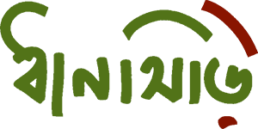No other book in English describes so vividly and comprehensively Soviet Russia at war. The author, returning
late in 1942 from the last of many journey to the Soviet Union, told how the farms and factories were working. He made the journey up the Volga to the Caucasus and Moscow,interviewing soldiers and civilians on the way. He heard the tales of the young heroes and heroines of the guerrilla warfare which had been so important a factor in Russia’s success, and went to their native village to interview their friends and relations, since they, of course had rarely survived.In the course of this book we see how Russia lived, ate,worked, as well as faught; we get a strong impression of the weapons they fought with and their feelings towards the outer world; and in the end are driven irresistibly towards Mr. Hindus’s conclusions that Russia was unbeatable
PREFACE:
It is Twenty years since I first went to Russia on a special assignment from
the late Glenn Frank, one-time editor of the now-defunct Century Magazine.
In Broken Earth, the book which resulted from that trip, in stating the method
and the purpose of my writing, I said:
“I went to Russia with only one purpose in view-to hear the people talk.I used the word ‘people not in the English but the Russian sense- meaning the dark masses; that is, the muzhik, the peasant. In the last analysis he is Russia; not the Russia that writes notes, issues ultimatums, signs treaties,
entertains ambassadors, grants interviews to foreign correspondents, but the Russia that toils, produces, fights, and dies. …”
These words were written in 1926. Much has happened since then to change not only the aspect of the Russian land but the face of the “dark masses.” The machine age, which has swept with fabulous speed the Russian countryside, has scraped the beards off their faces and ground the darkness out of their souls. It is out of these “dark masses” that for the first time in Russian history have come many great generals, among the greatest in the present-day Russian armies, Alexey Rodimsev, Andrey Yeremenko, Vasil Chuikoff, Semyon Timoshenko are only a few of their names. As the defenders of Stalingrad and the victors over picked German troops there, their names will rank as high as, if not higher than those of Kutuzov and Suvorov, both noblemen, and of Ivan the Fourth (the Terrible) and Peter the Great, both czars. The fact that two of these generals, Yeremenko and Timoshenko, are Ukrainians is of special significance in the light of the Russo Polish controversy over the Western Ukraine.The truth is that the peasant of old is no more. The muzhik of Tolstoy,
Chekhov, Bunin, and of other leading Russian writers who have for generations
wept over him, scolded him, loved him for his sorrows and his simplicities,has vanished from the Russian scene. With his disappearance has gone the former meaning of the word narod-people. The term no longer has its historic implication and has become as all-inclusive as its English equivalent.Today narod embraces the entire nation and all the peoples within the vast territories of Russia.
Yet throughout the years in my writing about Russia I have deviated but little from my original method and purpose. I have never sought the counsel and the judgment of the elite and the eminent.




